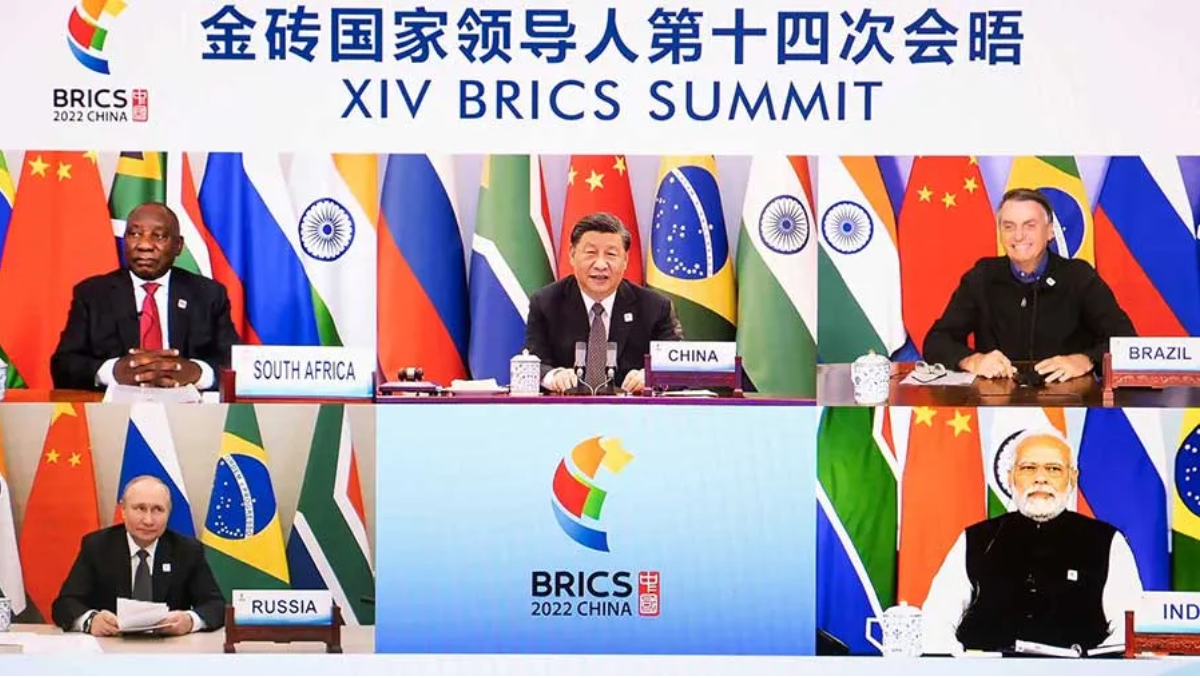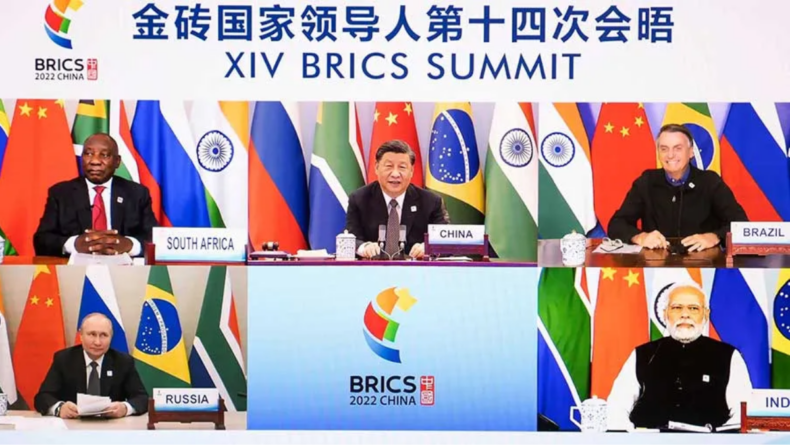The purpose of China, behind the expansion of BRICS, is the promotion of its agenda and strategy, via the BRICS mechanism and platform. At the same time, ease the containment of the US, diplomatically.
In the recent 14th BRICS leaders’ meeting, held in Beijing, the issue of BRICS expansion was again brought up and highlighted. First in 2017 at Xiamen Summit and now, for the second time, China showed its interest in the expansion of the group to emerging economies. Reports show that Argentina and Iran have shown formal interest in becoming a part of BRICS. The expansion proposal by China raises concerns for India.

China’s Interest in Expansion of BRICS:
China holds the opinion that BRICS- has been in a retreat; showing signs of weakness, and lacking coherence in actions. Hence, adding fresh members will inject new energy into the development. According to China’s assessments, a deterioration is observed in the economic performance of BRICS, including China itself, in the past seven or eight years.
The period of the rapid progress of BRICS seems to have been witnessed, most strikingly, by members like South Africa, Russia, and Brazil. While South Africa’s annual GDP growth was around 1.2% in the year 2017, Brazil’s economy saw annual growth of 1 percent in the same year. Russia also saw a growth of 1.8% in 2017.
Chinese analysts hold the view that economic distress in such countries caused internal political changes, which resulted in the weakening of BRICS’ common position, identity, and overall enthusiasm to promote the cooperative mechanism. For instance, members like South Africa and Brazil, with poor economic performance and internal political instability, are not ready to prioritize the BRICS agenda, in favor of their foreign policy flexibility and national interests.
The pandemic and the Russia-Ukraine war have only worsened the situation. Developed economies like the US and the West, are witnessing gradual signs of recovery. The US is trying to regain a leading position in the global economy, for industrial transformation, and technological revolution.
China feels the limited BRICS membership to its original members, will further reduce its global influence and ability to speak on a global platform. To add to the situation is the traditional and heightened competition from developed countries. Therefore, China is interested in the expansion of BRICS membership.
“China proposes to start the BRICS expansion process, explore the criteria and procedures for the expansion, and gradually form a consensus,”
-Wang Yi, China’s State Councilor and Foreign Minister.
Another important reason is growing China-US competition. Observers point out the weakened significance of BRICS for China’s foreign policy, with the G2 proposition of the Obama era. However, the G2 turned to a high-decibel confrontation only, under Trump; making BRICS China’s priority, In the year 2017, China proposed, the idea of expansion of BRICS for the first time.
It is observed in Asia, that the US is driving more countries, like India, Japan, and South Korea, into smaller circles of the Quad, Indo-Pacific Economic Framework, and AUKUS. The existing industrial model of ‘US-West-China’ seems to be replaced by newer models like ‘US-West-India’.
China’s other important concerns include the heightened geopolitics, global trade conflicts, the impacts of the epidemic, and industrial up-gradation. It is against this background, that China wants expansion of BRICS, focusing on the promotion of a community of supply chain interests.
If the emerging countries are embedded with China-led supply chains, it will neutralize potential competitors, like India.
Conclusion:
China’s aim behind the expansion of BRICS is to diplomatically, ease the containment of the US. At the same time, promote the Chinese agenda and strategy using BRICS mechanisms and platform; along with preventing the existing members, from drifting towards the US or the western camp.













